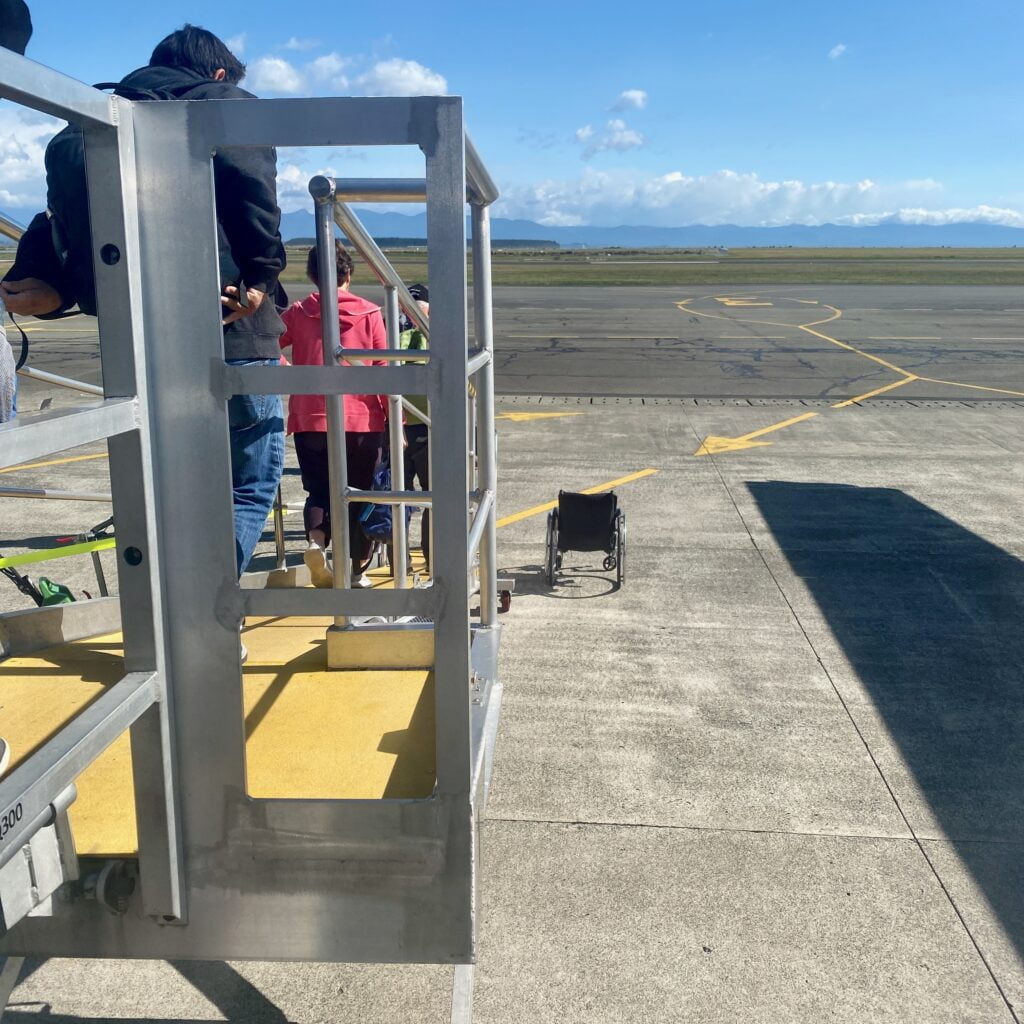Traveling by plane as a solo wheelchair passenger should be a comfortable and safe experience, and there are specific rights and regulations in place to ensure that. It is vital to know your rights when traveling as a solo wheelchair passenger before you book your ticket.
Here are some important points to know:
1. Non-Discrimination
The Air Carrier Access Act (ACAA) in the United States and similar laws in other countries prohibit discrimination on the basis of disability. Airlines must provide equal access to air travel for passengers with disabilities, including those using wheelchairs.
During the June 2019 IATA Annual General Meeting, global airline leaders unanimously agreed a resolution calling on governments to adopt IATA’s core principles for accommodating passengers with disabilities. These principles aim to change the focus from disability to accessibility and inclusion by bringing the travel sector together with governments to harmonize regulations and provide the clarity and global consistency that passengers expect.
International Air Travel Association
2. Advance Notice
It’s a good practice to inform the airline of your disability and any specific assistance you may need at least 48 hours before your flight. In fact, most airlines include a tab or option to click to add “passenger assistance required” on the booking page and on some airlines it is mandatory to request special assistance well in advance.
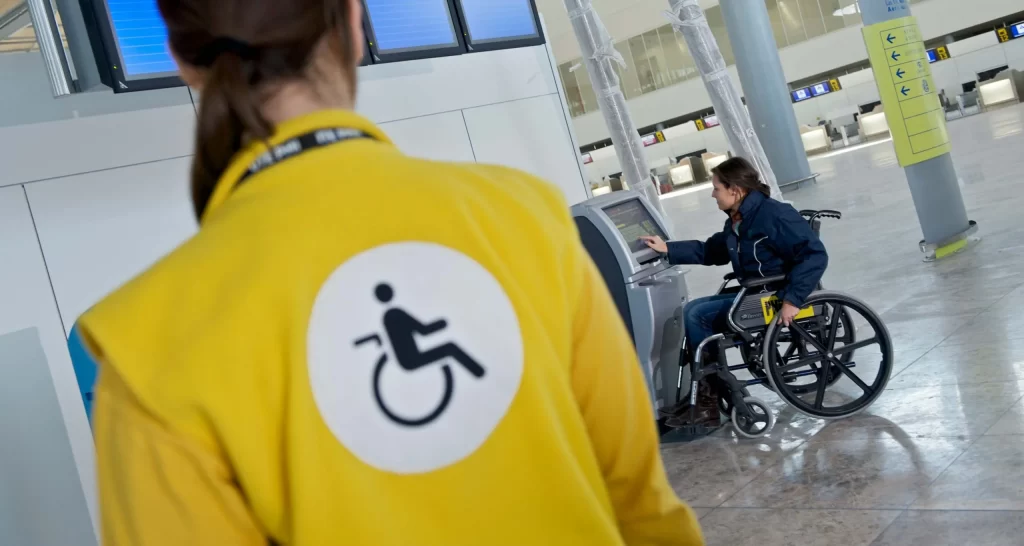
As a wheelchair passenger you may need to provide additional information such as your wheelchair’s dimensions, weight, whether you are able to walk from the aircraft door to the seat and several other important factors. Provide as much information as possible to allow the airline to make necessary arrangements to accommodate you.
3. Accessible Aircraft
Airlines are required to have accessible aircraft and facilities to accommodate passengers with disabilities, including those using wheelchairs. This includes accessible lavatories and seating arrangements.
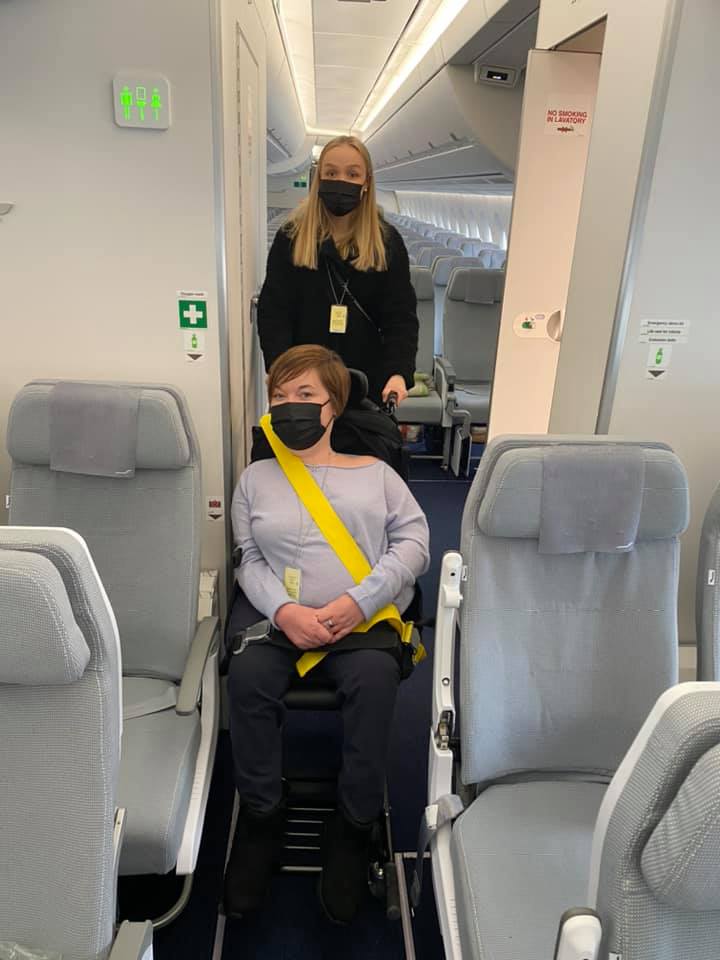
Be sure to select a seat that enables you to enjoy as much independence as possible during your flight. If you are able to “walk” a couple of steps while holding onto something, it will be ideal to select a seat close to the lavatory since you will be able to use it whenever you need to – possibly without needing any assistance during the flight. On the other hand, if you are completely immobile as far as walking is concerned, it will be important to ensure that a “slipper” or aisle chair is on hand to transfer you from the aircraft door to your seat for boarding and disembarking as well as to use the bathroom facilities during the flight.
4. Assistance at the Airport
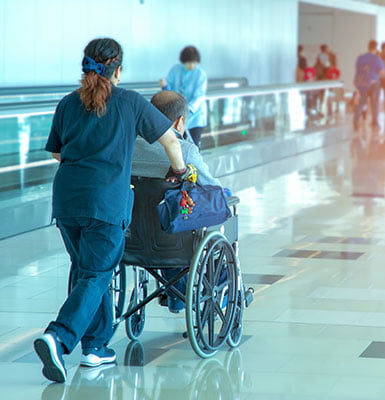
You have the right to request assistance at the airport, including help with getting to and from your gate, boarding and deplaning, and navigating the airport terminal.
You have the right to insist on your own wheelchair, especially during long layovers to enable you to get around, use lavatory and bathroom facilities independently just like other passengers do during that time.
5. Priority Boarding
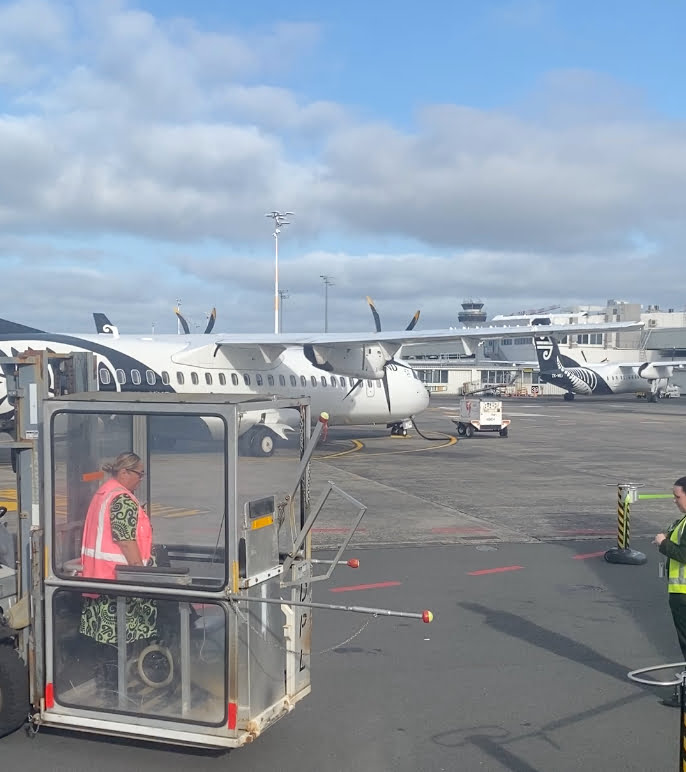
Many airlines offer priority boarding to passengers with disabilities, allowing you to board the plane before the general passengers. This can help you get settled and make the boarding process more comfortable.
Note: If you are boarding the aircraft using an aisle chair from the aircraft door to your seat, it will certainly be more comfortable to board first. No matter how small you are, the aisle chair is a really tight fit, so moving along the aisle with only seats and no people to contend with makes things a little bit easier and more comfortable.
6. Assistive Devices
You have the right to bring your own mobility aids, such as wheelchairs or scooters, on the plane. Airlines must stow them in the cabin if they can fit, or check them without charge.
Wheelchair are not luggage. Wheelchair frames are “fragile” in the sense that they will bend should any other items of luggage be packed on top them. Ensure that you request that the wheelchair is loaded last in an upright position with no luggage placed on top. This will ensure that the wheelchair is taken out first when you reach your destination which means it is likely that your chair will meet you at the aircraft door when you disembark. Always a reassuring sight to see your chair!
7. Seating Accommodation
Airlines must make reasonable accommodations for seating. You may request bulkhead seating or a seat with removable armrests to facilitate transferring from your wheelchair to the aircraft seat.
8. Personal Care Attendants
If you require personal care assistance during the flight, such as help with eating or using the restroom, you can bring a personal care attendant with you at no additional cost.
9. Communication Assistant
Airlines should provide communication assistance, such as ensuring that safety information is provided in an accessible format, including sign language interpretation or written communication.
10. Complaint Procedures
If you encounter any issues related to your disability during your flight, you have the right to file a complaint with the airline and the relevant authorities. Airlines are required to have a complaint resolution officer to handle disability-related complaints.
Note: Some airlines are definitely better than others when it comes to handling disability-related issues. While some airlines will go the extra mile to address concerns, other airlines will be less likely to be understanding and will, in fact, remind you that “you are lucky to be accommodated on the flight”
I had first hand experience of that on Emirates Airline upon arrival at Dubai airport when I requested access to my own wheelchair during a 9-hour layover. I was promptly and quite aggressively dismissed and given a wheelchair that was so large that I could hardly wheel myself to the bathroom facilities with my hand luggage on my lap. Needless to say, after 3 attempts at a successful arrival at Dubai Airport I have not been back and I have not used the airline again.
11. Accessible Information
Airlines should provide accessible information on their websites and in their booking systems, including information on their policies and procedures for passengers with disabilities.
It’s important to note that regulations and practices can vary by country and airline, so it’s a good idea to check with the specific airline you will be traveling with and familiarize yourself with their policies and procedures for wheelchair passengers. Additionally, consider contacting the airline’s special assistance department well in advance of your flight to discuss your specific needs and ensure a smooth travel experience. If you are new to traveling solo by air, consider contacting other disabled travellers and read as much as you can about the pros, the cons, the warnings and the successes.
No matter how much effort you put into being proactive and following all of the above suggestions, just know that there may still be an unpleasant surprise here and there. Control the controllables to ensure that your entire trip is not marred by ignorance or indifference.

